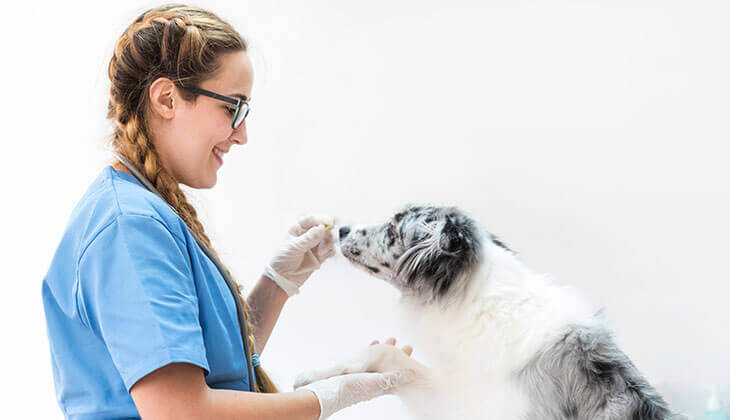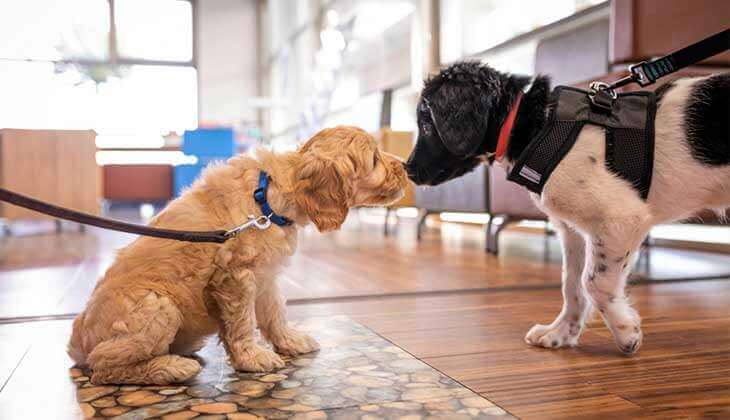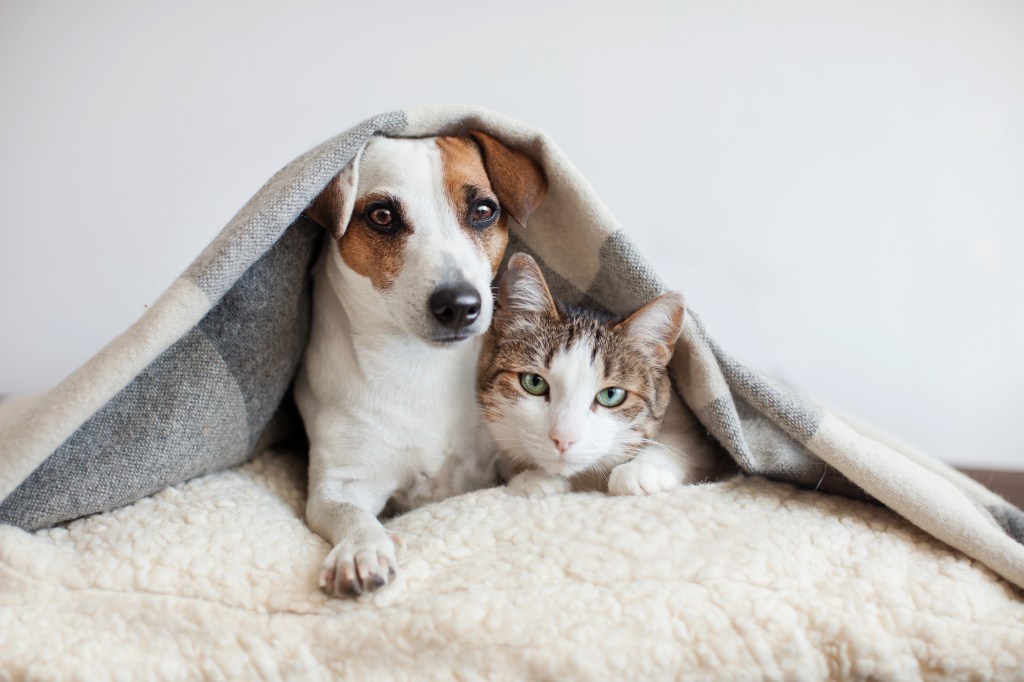As a pet owner, you have undoubtedly been confronted with the decision to spay or neuter your dog or cat. Veterinary practitioners and experts agree that there are tremendous benefits to spaying or neutering your pet, both on an individual level and to society at-large. Important health benefits to your feline or canine friends include reduction in common cancers and conditions of the reproductive tract as well as increased lifespans. Additionally, spaying or neutering can decrease undesirable behavioural issues, such as certain types of aggression, tendency to wander, and mating behaviours, which in turn, reduces other transmissible cancers, infections and injuries. On a larger scale, spaying or neutering of dogs and cats is an effective method of preventing overpopulation, which reduces the number of unwanted, abandoned and euthanised pets in many countries.
Despite these benefits, there are many myths that prevail around the practice of spaying and neutering, which often makes pet parents hesitant to actively discuss this topic with their veterinary practitioner or pursue sterilisation for their furry friends. Let’s take a look at some of the common myths around spay and neuter and the truth behind them.

OUR DOG NEEDS A LITTER OF PUPPIES TO FEEL COMPLETE
As humans, we sometimes have a tendency to project our own human feelings, traits or emotions onto our pets. This is actually considered to be an innate tendency of human psychology, called “anthropomorphism.” Yet, despite how much we love our pets, and how obviously they love us back, the fact is, they do not have the same kind of complex emotions that we have as humans. They don’t long for a litter in the same way humans may yearn for children. And on the health side, there is no health benefit to breeding a dog or cat.
MY DOG WILL GET FAT
This myth has emerged from the hormonal changes after sterilisation takes place, which may contribute to slowing down a dog or cat’s metabolism that occurs with age. Appropriate diet and exercise is important for all pets, regardless of their spay or neuter status. Weight gain is influenced by many factors. For most pets, the health benefits of spaying or neutering outweigh the risk of weight gain.

MY PET’S PERSONALITY WILL CHANGE
Spaying or neuteringr can reduce or even eliminate behaviours that relate to finding or competing for a mate, like roaming, fighting with other females or males, and urine marking. There is no consistent evidence regarding the impact of spay and neuter to other behaviours. Interestingly, behavioural issues are one of the most common reasons for relinquishment of pets and the majority of dogs relinquished have not been sterilised.
MY MALE DOG WILL BE “LESS OF A DOG”
Some dog owners may be concerned that their male dog will be sad about losing his “manhood” after being neutered.. This is another example of projecting human emotions onto our pets.
IT’S GOOD FOR THE KIDS TO SEE WHERE BABIES COME FROM
While witnessing the miracle of life through a litter of puppies or kittens could be a great experience for some children, it is not a good enough reason to breed the family pet. With a litter comes the effort and cost to keep the puppies or kittens healthy and also the task of finding each pet a loving owner. This seldom falls to the children and unexpected issues, costs, and challenges with placing pets in homes need to be considered. A fail-safe alternative option to expose them to the birthing process would be a volunteer opportunity with animals or even a nature documentary.

WE CAN MAKE MONEY THROUGH BREEDING
Circumstances can arise leading to unexpected high costs from breeding. Litters can be small, especially in small or toy breeds. Most significant are complications at birth requiring emergency hospitalisation and surgery (caesarean section), often seen in short-snouted or toy breeds. Similarly, finding responsible owners for each pup can be more challenging than anticipated and is highlighted by high numbers of pets waiting to be adopted in some shelters.
SPAY AND NEUTER PROCEDURES ARE EXPENSIVE
Many cat and dog owners are concerned about costs of the procedure, which prevents them from having their dog or cat spayed or neutered. Ask your veterinary practitioner if they offer preventive care packages and healthcare credit plans, as these are becoming more widely available to help split the costs of neutering procedures. Additionally, not for profit animal rescues, shelters, and welfare organisations have spay and neuter campaigns, which provide lower cost or even free options. The health risks to your pet that is not spayed or neutered could be much more costly than the procedure itself.
Ultimately, the benefits to spay and neuter generally outweigh any fears or questions on the part of the pet owner. The best thing is to have an open conversation with your veterinary practitioner. He or she can advise you as to how neutering will provide your pet with the most health benefits. Because the age at which your pet is spayed or neutered is dependent on breed, sex, temperament, health status and environment, your vet can help you figure out when the best time would be to schedule the procedure for your beloved furry friend.
Your veterinary practitioner plays a big role in your pet’s health. Enter your location information and get a list of vets near you.
FIND A VETERINARY PRACTITIONER NEAR ME





 Austria
Austria  Belgium
Belgium  Czech Republic
Czech Republic  Denmark
Denmark  Finland
Finland  France
France  Germany
Germany  Greece
Greece  Hungary
Hungary  Ireland
Ireland  Israel
Israel  Italy
Italy  Netherlands
Netherlands  Norway
Norway  Poland
Poland  Portugal
Portugal  Romania
Romania  Spain
Spain  Sweden
Sweden  Turkey
Turkey  United Kingdom
United Kingdom